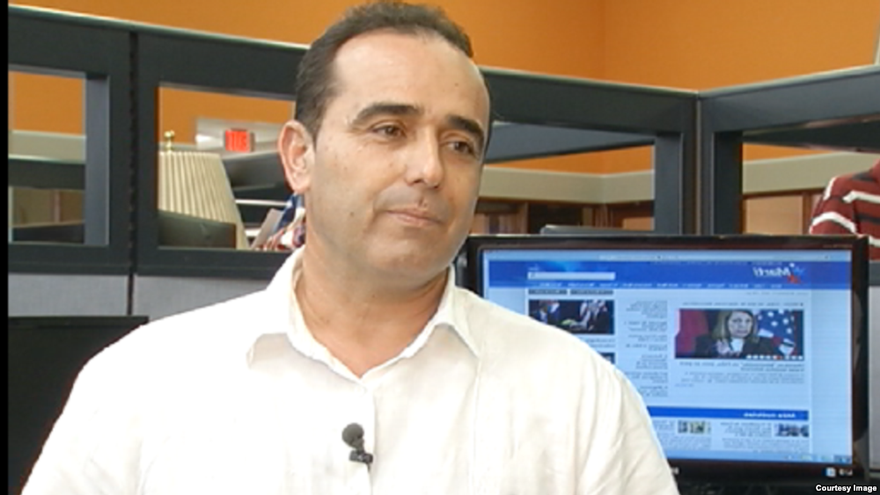
![]() 14ymedio, Havana, 7 February 2019 — Yaimaris Vecino, wife of Eduardo Cardet, visited the national coordinator of the Christian Liberation Movement and prisoner of conscience for the first time at the minimum security prison to which he was transferred last Friday by the authorities.
14ymedio, Havana, 7 February 2019 — Yaimaris Vecino, wife of Eduardo Cardet, visited the national coordinator of the Christian Liberation Movement and prisoner of conscience for the first time at the minimum security prison to which he was transferred last Friday by the authorities.
The visit went “fairly well”, according to Vecino as she explained to 14ymedio, and she believes that Cardet’s living conditions have improved in the new prison. “Everything is better there: the ventilation, the food, it’s less overcrowded … they call that place La Aguada,” she explained.
“His mind is a bit more calm, there he is also still under lock and key, nor can he walk around. He’s still in prison, but there has been a slight improvement in his conditions,” said Vecino.
Although Cardet has the option of working, he has not been able to do so thus far due to a lack of documentation that is on the way to being solved. “Soon he will have that resolved,” said Vecino.
The new jail administrators will allow Cardet to spend some weekends at home with his family, although before that occurs he will be on probation for 60 days before receiving an initial leave pass.
“Now I can go to see him every fifteen days, everything is more flexible. Phone calls as well; there they are able to make calls whenever they want,” his wife emphasized.
Cardet’s lawyers, according to Vecino, have again solicited his conditional release. “This is the fourth time, the court denied previous requests, objecting that he was not in a minimum security regimen, there is no reason for the court not to agree to give it to him now that he is no longer in that situation. Hopefully all will end well and soon.”
The Cuban criminal code establishes that a prisoner can “receive the benefit of parole” after having completed part of his sentence while showing good behavior or when due to the details of the of the case, it is presumed that the purpose of the sentence can be achieved without its full execution or with only a partial execution”.
Cardet, born in 1968 and a physician by trade, was violently detained in November 2016, five days after the death of Fidel Castro, accused of the crime of assault against an official and sentenced to three years in prison in 2017 by the Provincial Court of Holguín.
Last year, at a ceremony held in Miami, Cardet was named the winner of the Pedro Luis Boitel Freedom Award. Amnesty International declared Eduardo Cardet a “prisoner of conscience” and launched several campaigns urgently calling for his “immediate and unconditional release.”
Translated by Wilfredo Díaz Echevarria
_______________________
The 14ymedio team is committed to serious journalism that reflects the reality of deep Cuba. Thank you for joining us on this long road. We invite you to continue supporting us, but this time by becoming a member of 14ymedio. Together we can continue to transform journalism in Cuba.
